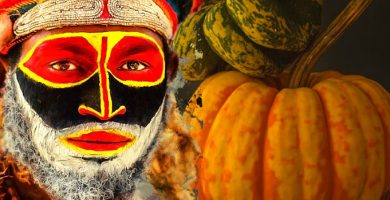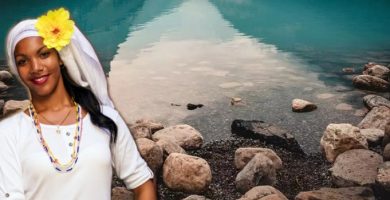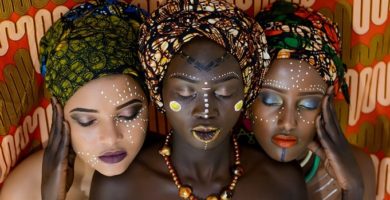
According to the legends of the slaves brought by force from Africa during colonization, in different countries of America the Orisha Shango When it is consecrated it does not have paths like other Orishas, but it is known by other names according to its histories and according to the region where it is venerated.
These names are also assigned to him depending on the titles he received when he was king, and in correspondence with the Ifá signs in which he speaks.
In summary, this Yoruba deity has acquired renown for his role as monarch, for his art of implementing laws, for his strength, his role as a war strategist, even for his relationship with powerful elements such as lightning and fire.
Shango and the meaning of their names in the Yoruba Religion
Below we present some of the names that are given to Shangó, the king of dance and fire in the Yoruba Pantheon, of some very little is known but we share some information.
1. Shango Addima Addima:
This avatar is worshiped in Takuá land.
Here Shango fights fiercely against his enemy Oggún, the owner of metal in Osha.
He is invoked when there are problems of justice and usually works with Eggun (spirits) always by his side.
Work to offer to the Orisha in this way:
- When he is offered corn flour with okra, he is covered with 6 knives, which are placed with the edge inwards and the order that is formulated in the middle.
2. Shango Olufina Kake:
In this facet the Orisha was small.
Shango Olufina Kake is a nickname that means "the creator who puts fire on the path".
He owns Iroko (the sacred Ceiba tree).
3. Shango Obbalube:
When he is with Obbá he is named in this way.
He is known as a sorcerer and healer and his orders to the cemetery are through Obbá and Eggún.
It is called to do sorcery and also to remove it.
He is born in Oyo and offers okra.
His name means "the king who attacks with a knife."
4. Shango Klao Obbara:
Shango presents himself as poor, disheveled, rejected for his lies and deceptions.
He has a lot of connection with another of his women, in this case Oyá the owner of the spark, but also with the Egguns and Yewá.
It is almost always invoked to shut the mouths of liars, slanderers and those who always speak of what they see without asking them.
The tongue of the ram fulfills this mission and is the one used for the works of nailing lying tongues.
Obbara's word is law and under no circumstances does he lie.
5. Shango Obbañá:
Shangó king and owner of the drums Aña.
Initiates pay tribute to him and salute him with great respect, without his permission they cannot participate in the drums at ceremonies.
In Takuá it represents a symbol of the revival of the Yoruba warrior people.
He is always very close to Shangó Olufina Kaké.
6. Shango Eyeé or Kaó Eye:
They represent Shango as the lord and owner of fire and lightning.
It is always accompaniedañado of:
- A machete,
- a mace and
- a knife with a curved blade, in the shape of a half moon.
He lives in the caves of the mountainsañas and in forests of thick foliage located in mountainous areas, places where their offerings are placed.
This deity only works to cast evil spells.
In many patakies (Yoruba legends) Shango Eyeé appears in the Dahomey nation, appearing in them constantly changing their appearance.
7. Shango Alayé:
He is a native of Lucumí land, he only eats fruits and his offerings are usually offered in the maniguas.
He is very mischievous and uses these antics to acquire other knowledge in exchange such as mastering spells.
A pataki tells that one day the Orisha Obbatalá sees him dance and he liked his dance, so Babá Obbatalá offers him a pact, if he taught him his dance he would give him his learnings and magic secrets.
Alayé agreed, but using his mischief he tells old Obatalá to start with what was agreed and the father of the world thus gives him the secrets.
Afterwards Alayé began to teach him his dance, but the old man could not follow his rhythm because of so much energy that he overflowed in these dances, thus obtaining the advantage of the exchange.
8. Shango Elueke or Eluwekón:
Shango is represented by the wooden Oshé doll that is crowned with the bipene ax received by Ozaín del monte.
The Orisha Osain is the one who offers him the office of knowledgeable teacher of the forest, therefore, he has extensive knowledge of herbs and plants.
Their children are usually doctors and biologists.
9. Shango Obayá:
Arára, a native of the land, a great strategist and warrior, is always mounted on horseback directing the fights.
Here the warrior Orishas Elegguá, Oggún and Oshosi are at your service and accompany youañan.
when of ensañaThis action becomes extremely dangerous, because until he manages to annihilate his enemy, he does not stop in his efforts.
10. Shango Lubbeo:
In this avatar, Shango is king of Obbara.
He presents himself as relentless, a fraud and a cheat, of his artimañaHis successes as King come from deception.
He is the spoiled son of the Orisha Aggayú Solá, the giant of the Osha and has much power from Ayé Shaluga (minor Orisha that brings prosperity and abundance).
In the Yoruba religion, one of its attributes of power cannot be without a trap.
The stone it carries is shaped like an ax, and it is placed with the edge facing upwards.
11. Shango Obakoso:
His throne is the palm, which is where he habita and he is described as a very handsome black man, reveler and pachanguero, always dressed in scarlet red.
This name means "the king did not hang himself".
It is closely related to:
- Laws,
- the fire and
- the rays.
12. Shango Obadimeyi
His name translates "the king is double", this meaning refers to the relationship that exists between Shangó and Aggayú Solá.
The fourth king of Oyó was Shango and he died by hanging.
After this, his half brother Dadá Ajaka claimed the throne, but the faithful to King Shango went to the Tapas lands in search of Aggayú Solá who returned to Oyó and overthrew Dadá Ajaka, becoming the King of those lands.
Aggayú Solá had great skill with gunpowder and for this reason he aroused great interest and became the king of the volcano and fire, traits that he transmitted to Shangó, now an Orisha.
13. Shango Bumi:
- He is the son of Obbatalá and Yemayá.
This Shango works very close to the reefs of the beaches, so his amalá is provided with seafood and fish.
The amalá is an offering with corn flour and the fruit of the okra, these are the main ingredients of the Orisha's favorite food.
14. Shango Dibeyi:
In this facet the link that Shangó has with the Ibeyis, the Jimaguas in the Rule of Osha-Ifá, is developed.
This is where the male twins with characteristics of Shango are unified and worshiped, establishing their powers and weapons doubly.
15. Shango Alafi Alafi:
A bond with his royalty, with the laws, with justice, with the government is firmly appreciated in this avatar.
He is respected by all for being a vigilante, he is always complying with the laws because of his great authority.
16. Shango Arira:
In times of rain, this Shango is always present, who is the owner of the rays.
He is the one who brings peace in times of great droughts with his presence in the rains.
His amalá is made with fish, it is also usually offered with corojo butter (epo) and molasses.aña (Oyin Ika Odo).
17. Shango Olose:
A great warrior who is credited with the power of the double-edged ax, he has an energetic character and his word is never doubted.
18. Shango Kamúkan:
His authority lies in his power over life and death, and this avatar works directly with the Egguns.
19. Shango Yakutá:
Means your name "he who throws stones".
20. Shango Bara Lubbe:
Before the interpreter of Ifá Orunmila, the first to have divination in his hands was Shango.
Here Orula and Shango change positions, within which is the skill of divination.
21. Shango Obaluekún
Ekún is a leopard so this name means "the king who hunts leopards".
We share some rituals on behalf of Shango if you want to venerate him:
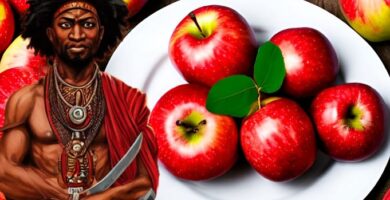
6 Apples for Shango: Offering to make a special request
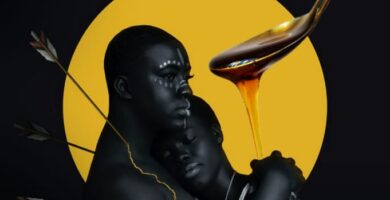
Are you looking for firmness and sweetness in your relationship? Work of Oshun and Shangó
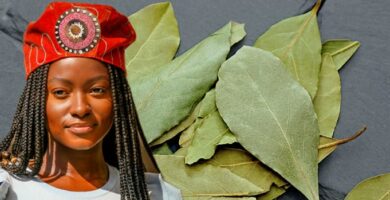
Do you want to unblock paths? Addimú to Changó to attract prosperity

Work with Shango to drive away those who bother us and achieve what we want
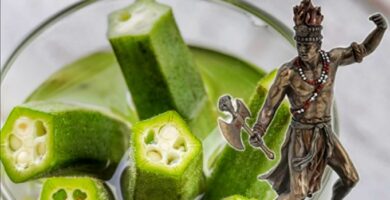
An Offering to Shango: Make a special request and give thanks
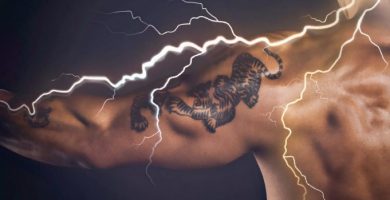
How to prepare an Adimú to Shango to obtain his favor and thank him?
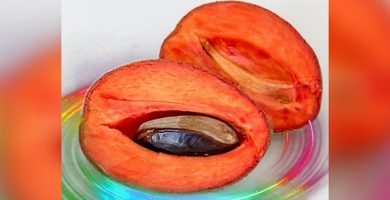
An Addimú to Shango with mamey for the development in our life

Baños in the name of Chango: So that the warrior frees you from difficulties
